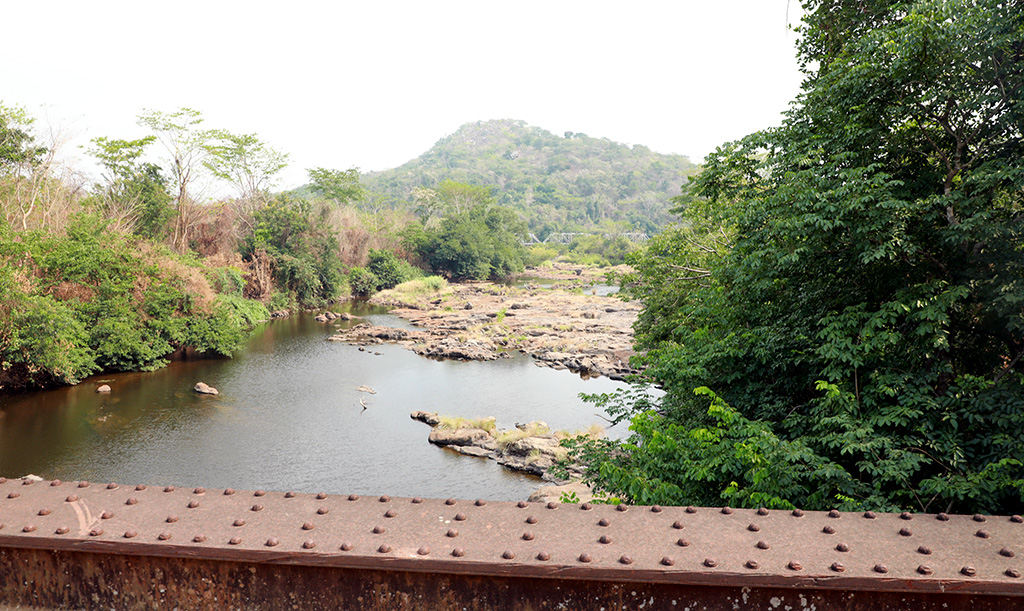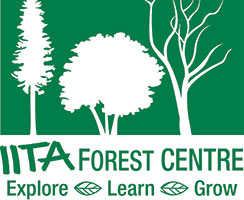25 Oct Climate Action cum Biodiversity Conservation
Why should we keep forests healthy?
Healthy forests and tree populations provide ecosystem services (clean air, healthy watershed, rich and topsoil cover from leaf decomposition and erosion prevention), habitats for other species, food resources for man, raw materials, and natural resource provision for producing other goods and livelihood opportunities for humans.
Keeping forests healthy mitigates climate change and global warming. Global warming is the long-term heating of the earth’s climate system. Since the 1800s, human activities from burning fossil fuels and carbon emissions from industrialization and urbanization have increased heat-trapping greenhouse gas levels in the earth’s atmosphere. The burning of coal, natural gas, and oil for electricity and heat is the largest single source of global greenhouse gas emissions.
The impact of climate change in sub-Saharan Africa is seen in the rise in temperature, erratic weather patterns, and people’s inability to make a living due to disruption by drought, heatwaves, floods, and storms. At COP26, the 26th United Nations Climate Change Conference to be hosted by the UK in Glasgow, global leaders will come together between 31 October and 12 November 2021 to make bold decisions and accelerate actions to keep the world on track in providing workable solutions to the 1.5-degree climate goal under the Paris Agreement.
Nations must meet the commitments established in the agreement from developed nations to developing ones. This means mitigation and adaptation actions in one part of the world bears on those in other parts of the world. As the impacts of extreme weather become more evident in Africa and worldwide, we need solutions to our climate emergency and climate change challenges.
IITA contributes to the mitigation of climate change in Africa through environmental sensitization and awareness programs and reforestation activities, both locally and globally. One of such programs is the reforestation of over 6000 ha of the degraded Olokemeji Forest Reserve in Ogun State, Nigeria. The project is a public-private partnership between IITA Forest Center, Nigerian Breweries Plc, and the Ogun State Ministry of Forestry.

Finance is critical to achieving climate change solutions. The President of the African Development Bank, Dr Akinwunmi Adesina, says the African continent is on track to mobilize a 25 million target between 2020 and 2025 to support investments that address climate change and promote green growth. The Bank will commit more funds to proffer solutions to climate change in the continent. Investments in climate change actions will pave the way for green jobs, providing food, fuel, and tourism opportunities.
Keeping forests healthy also conserves important tree species, birds, and other living organisms who derive their food and shelter from trees. Recently, lovers of nature and migratory birds connected in different places across the planet to celebrate this year’s World Bird Migratory Day under the theme: “Sing, Fly, Soar – Like a Bird!” in an annual global campaign dedicated to raising awareness of migratory birds and the need for everyone to join hands together, both locally and international to conserve them.
Birds peculiarly hold the ability to connect and re-connect people to nature and themselves like no other animal on the planet. Birds are found everywhere: in forests and mountains, in cities and countryside, in parks and backyards, and wetlands and along water shores. They connect different habitats and they connect us. They remind us of our connection to the planet, our environment, wildlife, and one other. Through their seasonal movements, migratory birds are also regularly reminding us of nature’s cycles.
Birds pollinate our food and flowery plants, carrying nectar from the anther of a plant to the stigma of other plants. Hummingbirds and sunbirds pollinate plants such as orchids and other wildflowers. As birds seek energy-rich nectar, pollen is deposited on the bird’s head and neck and unwittingly transferred to the next flower they visit. Ornithophily or bird pollination is the reason many bird-pollinated plants haven’t gone extinct.
Healthy forests provide a home for a variety of birds. The IITA Forest Center is home to the Ibadan Malimbe, a bird endemic to the southwest of Nigeria and one of the most threatened of the four endemic birds in Nigeria. The others are the Jos Plateau Indigobird, the Rock Firefinch, and the Anambra Waxbill. Deforestation takes away birds’ familiar habitat. According to the Nigerian Conservation Foundation, Nigeria has one of the highest deforestation rates globally, running at about 350,000 to 400,000 ha per year. That is a 3.5% deforestation rate.
We all have our connecting stories with birds to share. Be it the croaky crow that serves as our alarm and wake-up call at dawn, or their accompanying beautiful chips that ring through lonely paths, or their droves flying in the sky to signify the change of seasons. Birds have even served as study agents for the development of our aircraft innovations.
Despite Africa’s population pressure, urbanization, poverty level, rising unemployment, and economic downturn, we owe ourselves and future generations the responsibility to keep our planet safe. Keep the forests, keep our climate. Keep the forest, keep our birds. There is no limit to what nature gives back to us when we use the earth’s resources respectfully. Let’s Sing, Soar and Fly together –as Birds! That’s how living in sync and harmony with our earth should be.

